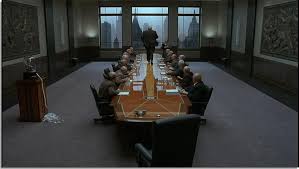
We all know how challenging the year 2023 was in the entertainment industry. We don’t need to rehash the double strikes, the layoffs, the mass exodus out of town, or the lives and careers that were either stalled or completely snuffed out. As challenging as the spring and summer were, optimism abounded in the autumn as both strikes ended within weeks of each other, and thousands of people were poised and ready to return to work.
But that isn’t what happened.
Very few people actually returned to work, and the winter brought with it the coldness of uncertainty. When would projects start gearing up again? When would the entertainment business go back to being in business? Well, with two more strikes looming in 2024, the answer is, who knows? One would think that the studios would be smart and use the experience of last year to their advantage. One would think that they would want to be proactive and get through negotiations with IATSE and the Teamsters now so that there won’t be two more strikes this year. Instead, for reasons unknown, the corporations that run the studios seem content to sit on their money and play the waiting game… again.
One thing that is clear is that the corporate executives currently in charge of the entertainment industry seem hell-bent on killing the goose that lays the golden eggs.
Corporations have owned movie studios for a long time. Once the studio system was scuttled in the 1960s, large corporations added movie and television studios to their various portfolios, but left people in charge of those entities through the 70s, 80s, and 90s who knew what they were doing and were passionate about movie making and storytelling.
We obviously live in a different world than we did thirty, forty, and fifty years ago, but the paradigm shift that has occurred in Hollywood threatens its very existence. Hollywood has often been a risk-averse place. Executives want to cast stars they know will draw audiences to star in movies they think people want to see. There was a time when movie moguls made those decisions, but now they’re being made in board rooms.

That’s not to say that men like Walt Disney, Jack Warner, Louis B. Mayer, and the rest of the movie moguls of Hollywood’s Golden Age were infallible. Walt Disney fired animators who went on strike and only hired them back when ordered to by the courts. He then made many of their lives so miserable at the studio that they ended up quitting anyway. Jack Warner ruled his studio with an iron fist, holding actors to iron-clad contracts and refusing to let them out of them, and he ended up screwing over his own brother to gain complete control of the studio. Louis B. Mayer’s temper was legendary, and he liked to meddle in the lives of his actors.

Clearly, these men weren’t saints. But they were movie men. They loved making movies they were creative people by nature. They knew what their audiences wanted, and they knew how to deliver that. Not every movie was a blockbuster, but their studios were, for the most part, profitable and very often prosperous. Also, the movie studios these men ran were their entire business. They weren’t pieces of multinational, multi-billion-dollar entities. Disney, Warner, Mayer, and others were the heads of companies, not corporations. These companies produced movies and, eventually, television, but not much else.

Today, The Walt Disney Company owns multiple studios and properties. Warner Bros. has been bought and sold so many times it’s impossible to keep track. Paramount, once the largest studio in town, is owned by Viacom. The MGM lot is now Sony. Comcast owns Universal. The movie studios now are but smaller pieces of the giant portfolios that these corporations oversee. That is likely why there is no urgency for them to negotiate with IATSE and the Teamsters. Still, they don’t want to throw a bunch of money at a project that has a 12-week schedule only to have to shutter it after 10 weeks when IATSE and/or the Teamsters go on strike for God knows how long.
At the beginning of the writers’ strike, the studios allowed the thoughts of one executive to leak when the strategy of letting writers lose their homes and then having them crawl back to the table for better studio terms became public. When people realized some of those homes would also be the domiciles of wives and children, the “let them eat cake,” mustache-twisting villains we all thought the studios were became a reality.

If these executives care about movies, it’s only so they can say that they’re rubbing elbows with the stars and get to go to all the awards shows in February and March, along with the red carpet premiers at the Chinese Theater or wherever else they happen to be. Otherwise, movies are being made by boardroom decisions. That’s the only explanation for what the movie business has become over the past decade and a half.
Is there hope for change?
I think there is. The cynic in me says that these executives are so blind that they will continue to do what they’ve been doing. The idealist in me says that they must see the change that needs to be made. The Marvel and DC universes are dying. But movie franchises like Avatar and Dune have shown that they can be successful when a single director is allowed to express his vision without too much meddling from a studio. Movies like Anyone But You showed that audiences will go see smaller movies. Perhaps not in droves like the big tentpole franchises, but that movie was profitable. You can say what you want about how good it was, or it wasn’t, but it made over $80 million on a $20 million budget. Someone in the accounting office must notice that.

When Cord Jefferson gave his acceptance speech at the Academy Awards for winning the Oscar for Best Adapted Screenplay for American Fiction, a film that made over $20 million on a budget of under $10 million, he implored Hollywood to change its business model. “Instead of making one $200 million dollar movie,” he said, “make ten $20 million dollar movies.”
Will they take his advice? Only time will tell. Partly, it’s up to audiences to speak up with their wallets because, ultimately, it’s the money that listens. If another $20 million-dollar RomCom comes out in the next couple of months, and it makes another $80 million or $100 million, they’ll have to take notice. Someone has to convince the members of the boardroom that not every movie has to be a blockbuster. Having a profitable business that employs a lot of people, provides entertainment to millions of others, and brings more eyes to their other brands can be just as valuable.